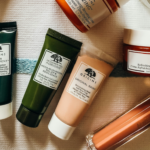CivicScience continually tracks current and anticipated consumer trends. Here are three key insights marketers should know this week. All insights are derived from the CivicScience SPEC Report, an exclusive weekly report covering relevant social, political, economic, and cultural trends to help brands better understand and communicate with consumers.
1. American households report virus cases, but fewer Americans wear masks today than last year.
Following a particularly bad winter for flu, COVID, and RSV cases, preliminary CDC data show a recent resurgence in strep throat cases. According to the latest CivicScience data, 1-in-5 U.S. adults report that someone in their household contracted either the flu (9%), COVID-19 (8%), strep throat (6%), or RSV (4%) in the last month. These figures jump among parents of children under 18, with the percentage of flu cases having the largest gap (8 percentage point difference).
In other findings – available in the full SPEC Report – about 1-in-4 U.S. adults are wearing a mask today, nearly half the average in September 2022 (n=3,005).
2. Majority of Americans are willing to take medications off-label.
Over the last few years, diabetes medications have been growing in popularity as weight-loss medications, bringing to light the discussion of whether drugs should be used in other ways not approved by the FDA (“off-label” drug use).
According to the data, about two-thirds of polled respondents report they’re willing to take drugs off-label to treat other conditions. The majority say they would only do so if their doctor prescribed or approved the medication, compared to basing the decision exclusively on their own research. However, Gen Z and Millennials are more likely than any other age group to take a medication off-label based only on their research.
3. Americans trust mental health providers significantly less than other healthcare providers, with trust levels varying by race.
Most Americans say they trust doctors and other healthcare providers in general. However, a CivicScience poll asking how much Americans trust a range of healthcare providers shows that Americans report the lowest levels of trust in their psychiatrist/mental health nurse practitioner and the highest levels of trust in their eye doctor and general practitioner. Overall, 1-in-5 U.S. adults say they don’t trust mental health providers at all.
This is significant given that emotional well-being has been consistently low for certain demographics and that Americans who do not trust doctors are more than twice as likely to report they have not seen a healthcare professional in the past year, as shown by CivicScience SPEC Report data. Current data indicate that Black (26%) and Asian/Pacific Islander (21%) Americans are more likely to say they ‘do not trust’ psychiatrists/mental health providers (along with those who answered ‘Other’). Hispanic/Latino Americans are more likely to ‘completely trust’ mental health providers (22%), and White Americans report the greatest overall trust (53%).
Want to see more insights like these? Discover the latest consumer opinions on social, political, economic, and cultural trends in this week’s SPEC report. Clients receive the full SPEC Report every week. Work with us.








